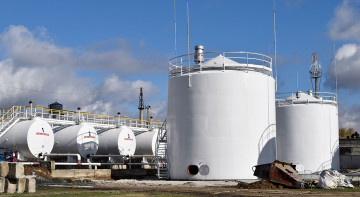Obtaining a license for electricity supply
Electricity supply licensing is an important component of energy market regulation, which ensures control over compliance with quality and safety standards in the electricity supply market. This is a process that requires compliance with a number of legal and technical requirements, as well as obtaining an appropriate license from state bodies regulating the energy sector. Licensing is designed to ensure market stability, protect the interests of consumers, and ensure efficient and safe electricity supply.
An important part of this process is consultation and legal support, which allows organizations to correctly go through all stages of licensing and avoid possible errors that may lead to a refusal to issue a license.
Legal stages of obtaining a license for electricity supply
The process consists of several key legal stages that ensure the correctness and legitimacy of the provision of this service:
- Document preparation:This stage involves gathering the necessary documents and information to apply for a licence. This may include company incorporation documents, financial statements, power supply and distribution plans, equipment technical specifications and other relevant materials.
- Application: The company shall apply for a licence with the relevant regulatory authority or agency. The application shall be made in accordance with the requirements prescribed by law and shall include all necessary information.
- Review of the application: The regulator conducts a review of the application and the documents submitted. This may include analysing the company's financial situation, its technical readiness to provide the service, and its ability to comply with safety and quality requirements.
- Public discussion: In some cases, the regulator may hold public hearings or consultations on the granting of a licence. This allows interested parties to express their views on the application.
- Decision-making: Based on the outcome of the application and all relevant factors, the regulator decides whether to grant or refuse a licence.
- Licence issuance: In case of a positive decision, the regulator issues an electricity supply licence. This is a document that authorises the company to officially operate in this field.
- Compliance with the conditions of the licence: Once a company has obtained a licence, it must comply with all the conditions stipulated in the licence and the law, otherwise it may be refused a licence renewal or other measures may be taken.
Successful completion of all stages of obtaining a license for electricity supply is the result of careful preparation and compliance with established requirements. From correctly executed documentation to the fulfillment of all legal and technical conditions - each stage is important.
.
Under what conditions can the service of obtaining a license for electricity supply be provided to a consumer?
There are a number of requirements and conditions in the provision of the service that must be met in order for it to be provided:
- Licensing: A company providing electricity supply service must have the appropriate licence or permission from the regulatory authority.
- Compliance with norms and standards: The company shall comply with all requirements set by law and regulations, including standards for quality, safety and reliability of electricity supply.
- Technical readiness: the Company shall ensure that the necessary infrastructure, equipment and technical personnel are available to provide the service.
- Financial stability: The company must have sufficient financial resources to ensure the continuity of electricity supply and fulfil its obligations to customers and state authorities.
- Environmental compliance: The Company shall comply with all regulations and standards relating to environmental safety and environmental protection in carrying out its activities.
These are all basic conditions that guarantee high-quality and safe electricity supply.
Under what conditions can the service of obtaining a license for electricity supply not be provided?

Lack of licence or permit: If the company does not have the relevant licence or permit from the regulator, it is not eligible to provide electricity supply service.

Default: If a company fails to comply with the conditions imposed by the licence or legislation, including requirements for the quality, reliability and security of electricity supply, it may be refused to provide the service or have its licence revoked.

Failure to meet environmental standards: If a company is in breach of environmental regulations and standards, this may result in the suspension or cancellation of its licence or permit to provide the service.
How to independently obtain a license for electricity supply to a consumer?
Although the process may seem complicated, there are specific steps that will help you understand all the necessary requirements:
- Research legislation and regulations: Familiarise yourself with the laws, rules and regulations governing the energy sector in your country or region. This may include licensing laws, quality and safety standards, environmental sustainability requirements, etc.
- Research licensing procedures and requirements: Explore in detail the requirements and procedures for obtaining a licence to supply electricity. Find out what documents need to be submitted, what conditions need to be fulfilled, and what steps need to be taken.
- Contact the regulatory authority: Contact the local regulator or agency responsible for licensing energy services. Check with them for specific requirements and procedures, and get advice on questions you may have.
- Prepare the required documents: Gather all the required documents and information to apply for a licence. These may include company incorporation documents, financial statements, equipment specifications and others.
- Apply: After preparing all the required documents, apply for a licence with the relevant regulatory authority. Ensure that the application is completed correctly and includes all the required information.
- Monitor the review process: Monitor the review process of your application and, if necessary, provide additional information or documents when requested by the regulator.
- Comply with licence conditions: Once you have obtained your licence, be sure to comply with all conditions set out in it, as well as legal and regulatory requirements. This will help avoid problems and ensure the continuity of your business.
Understanding the process of obtaining a license for the supply of electricity is quite possible if you follow clear instructions. Compliance with all requirements will avoid problems in the future.
.
Frequently asked questions about a license for electricity supply
Question
How much does a licence to sell electricity cost?
Answer
The cost of an electricity sales licence can vary considerably depending on the region in which you plan to operate and the specific requirements and procedures set out by the regulator. Typically, to obtain a licence to supply the purchase of electricity companies must pay a certain amount of money to apply for and go through the review process. In addition, there is often an annual fee to maintain the licence. The cost of a licence can also depend on the size and type of your company, the amount of electricity you sell, and other factors such as taxes and fees imposed by local authorities. For accurate information on the cost of a licence to sell electricity in your particular jurisdiction, it is advisable to contact the local regulatory authorities or agencies responsible for energy licensing. They will be able to provide you with specific information on the requirements and rates for obtaining a licence in your area.
Question
Power generation licence how do I check?
Answer
To check whether a company has a licence to generate electricity, you can take the following steps(electricity supply licence): Check the regulator's website: Many countries have official websites that provide information on the licensing of companies in the energy sector. On such websites you can find a database of licensed companies and check if the company is listed. Contact the regulatory authority: You can contact the local regulator responsible for the energy sector and ask for information about that company's licence to generate electricity. They will be able to provide you with confirmation of whether or not you have a licence. Check the company's documents: If you have access to the company's documents, you can check for the existence of a power generation licence among other documents. Usually, the licence should be issued by an official regulatory body and should contain information about its validity and expiry date. Contact local authorities or industry associations: Local authorities or industry associations may be able to provide information about the company's licensing or assist you in this matter.
Question
Where to buy a company with an electricity licence?
Answer
Buying a company with an electricity licence can be a complex process, requiring thorough market research and working with professionals in the field. Here are a few ways you can find a company with a licence: Business exchanges and business listings: Some business exchanges and online platforms specialise in selling ready-made businesses. You can search for companies with power generation licences on such resources. Brokers and consultants for business deals: There are specialised brokers and consultants who can help you find and acquire a company with the right licence. They have experience and knowledge of the market and can guide you through the transaction process. Direct contact with company owners: Sometimes companies with electricity generation licences may be on the property market or owned by individuals. You can try to contact the owners directly and express your interest in buying their business. Commercial real estate agencies and consultancy firms: Some real estate agencies and consultancy firms can help you find a company with the right licence in the energy market. Auctioning and bidding: In some cases, companies with power generation licences may be sold at auctions or tenders held by government agencies or other authorised organisations.
.
What does the cost of obtaining a license for electricity supply depend on?
The price depends on several factors. Among them: the complexity of preparing documents, the specifics of the applicant company (the size of the company, its activities and volumes), the need for additional consultations or audits, as well as the timing of the procedure. The cost may also vary depending on whether it is necessary to accompany the licensing process through other stages, such as inspections or license renewal. Taking into account all legal and technical requirements, as well as the experience of the lawyer providing the consultation, also affect the price of the service.
ConclusionObtaining a license to supply electricity is a complex but important process that includes legal, technical and financial aspects. Careful preparation, compliance with established requirements and passing all necessary stages are the key to success in obtaining a license. Fulfilling these requirements will help the company to operate legally in the market, maintaining high quality of services and fulfilling all obligations to state authorities and consumers.




































